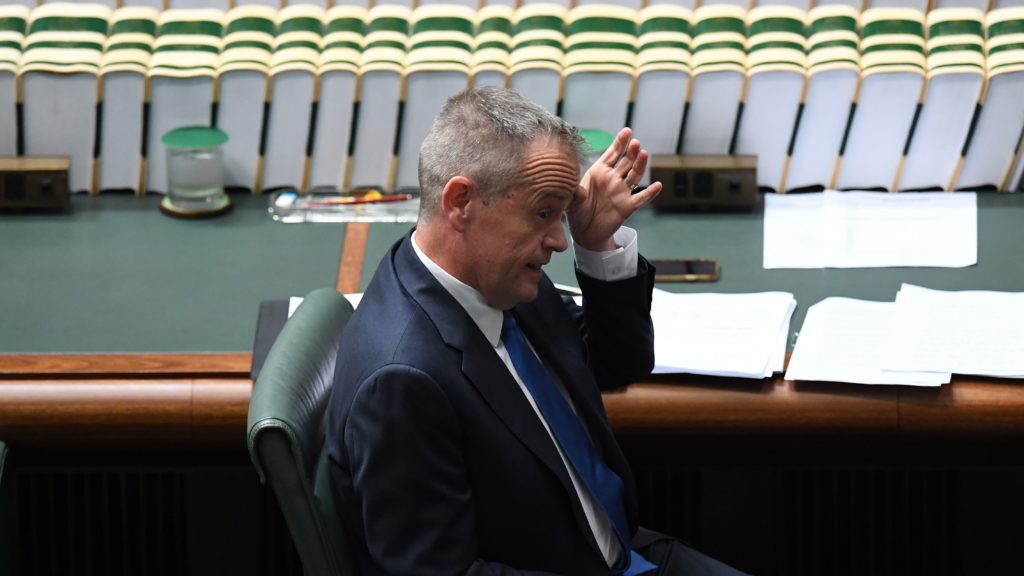Malcom Turnbull’s Liberal-National coalition government is so serious about trying to win the next federal election, it has finally abandoned its previous fiscal orthodoxy about the need for “budget repair”. This concept was integral to the Coalition’s core message when it defeated Labor in 2013 and when Tony Abbott was the leader. Its implied message was that, under Labor, Australia’s public finances had been subject to profligacy by a desperate government more anxious to do the bidding of the Greens. The old Coalition approach was based on the argument that Australia desperately needed the discipline of fiscal conservatism to bring things back to a sustainable level.
Move forward to 2018 where the nation’s constitution requires a simultaneous election of all of the House of Representatives and half of the Senate from as early as August to 2018 to as late as May 2019, and where Mr Turbull’s government has famously withstood more than thirty adverse opinion polls, and the change in circumstances for Scott Morrison’s latest budget becomes obvious.
The Coalition lags behind Labor in the national polls, but a swing back to the government occurred on the back of the Opposition’s decision to launch an attack on dividend imputation tax breaks. As voters became nervous about Bill Shorten’s incomprehensible proposed reform to an incomprehensible aspect of Australia’s tax laws, the government intuited that there was every chance that Labor could again snatch defeat from the jaws of victory at a forthcoming election.
Mr Morrison’s budget thus reflects a political, rather than an economic imperative. Budget repair will have to wait. There is an election to be won and there is a large constituency made up of lower and middle income earners whose vote might be won with offers of a tax cut. This constituency has suffered through a virtual wage freeze while prices have been rising particularly for essential services such as water and energy. Tax relief to this component of the electorate might do little for budget repair, but it does meet the demands from another important Liberal constituency in the form of the small business community who have been calling for something to happen to stimulate demand. It has been this aspect of Mr Morrison’s budget that has received some muted praise from economists who usually are amongst the first to criticise any budget that doesn’t reduce debt.

In short, the 2018 budget is a clever exercise in politics made possible by the way the previous budget’s gloomy forecasts seriously understated revenue for the last financial year. It makes perfect political sense for the government to spread this largess around the electorate not only to attempt to outflank its opponents, but to also deflect attention from some of its own inconsistencies in this area of policy. The Turnbull government has been seeking to institute a major cut in corporate tax right at the very moment some major corporations are being asked to account for the misbehaviour at the financial services royal commission. If it’s acceptable for companies that have been misleading their customers and regulators to have their taxes cut, so too does it become imperative that wage and salary earners obtain some relief.
The budget thus sets the government up to be a viable participant in the next federal election. The onus is on Labor to counter the government’s offer, although the danger for Mr Shorten is that he and his Labor colleagues will muddy the waters with proposals to do away with share imputation credits and negative gearing. This will play in to the government’s hands. In fact, the biggest threat to the political impact of the budget does not come from its parliamentary opponents. Rather, the re-emergence of the citizenship crisis thanks to the High Court’s recent determination of the status of a Labor senator poses a bigger threat.
This recurring issue will result in the resignation of four other members of the House of Representatives and the need for by-elections. This all has the potential to deny Mr Morrison’s budget the attention the government would be hoping that it’s tax cut proposals would be otherwise receiving. The budget crisis that the Coalition went on and on about in its first term of government may have been placed on the back burner, but the citizenship crisis refuses to go away. The High Court may well have derailed one of the government’s key re-election strategies.









